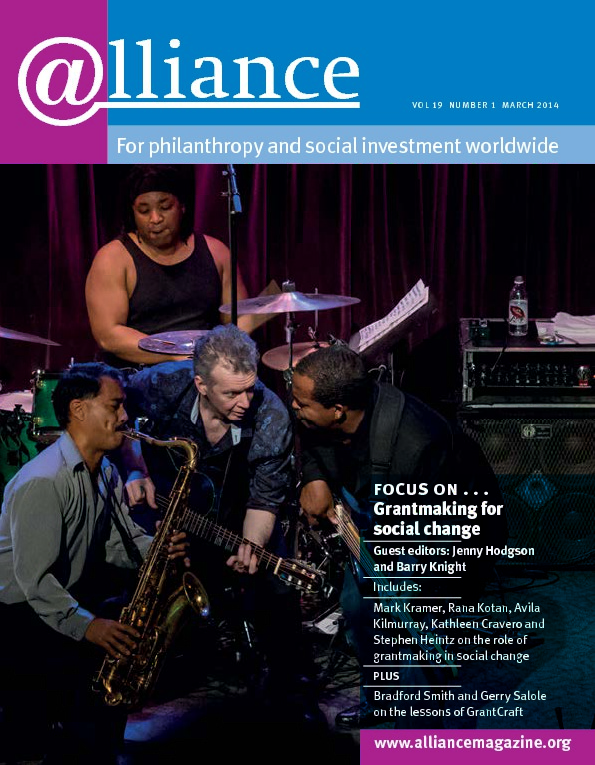WINGS – Worldwide Initiatives for Grantmaker Support – is a global network of more than 140 support organizations serving philanthropy. Grantmaking and grantmakers are at the root of our network. WINGS’ beginnings go back to 1998 and Oaxaca, Mexico, the venue for the International Meeting of Associations Serving Grantmakers (IMAG). IMAG was the first attempt to offer professional skills development and networking opportunities to grantmaker associations worldwide. Discussions at IMAG evolved into the formation of WINGS, based on the recognized need of grantmaker associations for a forum to discuss common issues and to avoid working in isolation.
As the WINGS network grew, with new members joining from every region, a broader concept was adopted. Nowadays, our network consists of a wide and diverse group of organizations serving the philanthropy sector worldwide, ranging from grantmaker associations and venture philanthropy networks to social investment support organizations.
A similar phenomenon is taking place in the US, where some of our members are substituting the word ‘philanthropy’ for ‘grantmaking’ in their names. For instance, the Ohio Grantmakers Forum has changed its name to Philanthropy Ohio. (It is curious to note that out of over 140 organizations in our network, only 13 have the word ‘grantmaker’ or ‘grantmaking’ in their name, 10 in the US and three in Africa.) The change in words reflects the intention to include the various forms and actors engaged in philanthropy, not to move away from grantmaking.
Grantmaking is an essential strategy for bringing about social change. It represents the organizational building blocks of civil society. It provides resources for a large and diverse range of non-profits to build institutional capacity and to undertake their activities. It also provides resources for grassroots initiatives, social movements and individuals to improve the lives of communities and tackle the most intractable social problems. It can support a wide range of interventions, from community mobilization and participatory research to capacity building and income generation. Nevertheless, grantmaking has been criticized for failing to achieve desired social outcomes and for failing to help non-profits build capacity and sustainability.
Meanwhile, new forms of philanthropy such as venture philanthropy, strategic philanthropy, catalytic philanthropy and impact investing are getting a lot of attention. Promising outcomes that are scalable and sustainable, they attract people and organizations that would not consider simply giving, in particular the millennial generation, who are often interested in more engaged ways to help and avid for tangible results. Applying business tools and strategies to social problems, they support entrepreneurial action for the public benefit. They offer services and goods to people who need them. However, critics point out that these models are not best suited to address the most deep-rooted social problems that require social transformation such as global poverty, violence and inequality.
We are concerned that with all this excitement with the new, grantmaking is increasingly being dismissed as an important strategy to bring social change. Emerging economies, where philanthropy is young, seem ready to adopt the mistaken idea that grantmaking is no longer relevant, associating grantmaking with ineffective traditional interventions. But a recent survey of our members, published in this issue, confirms that our members see grantmaking as an invaluable strategy to support civil society in addressing the most complex issues and contributing to social change. The challenge lies in proposing tools for more effective grantmaking; in inspiring grantmakers to be changemakers; in identifying the best practices for grantmaking in increasingly complex and globalized societies. Equally important is to explore the role of grantmaking in supporting and collaborating with the new forms of philanthropy.
It is inspiring to see how the world of philanthropy is adapting to an ever-changing global context and adopting new models and strategies. They are all valid ways of doing good. They all have strengths and weaknesses. What we need is to continue the debate started here with this issue of Alliance and to be continued at WINGSForum 2014, to sort out the claims and criticisms of these various models and strategies of philanthropy, to understand the tensions between them, and to discuss how to move forward together, shaping philanthropy for the next generation as a global force for good.
Helena Monteiro is executive director of WINGS. Email hmonteiro@wingsweb.org






Comments (0)